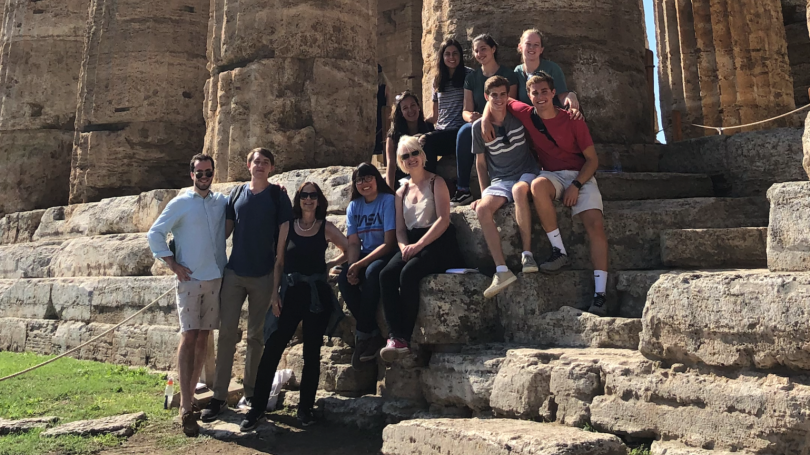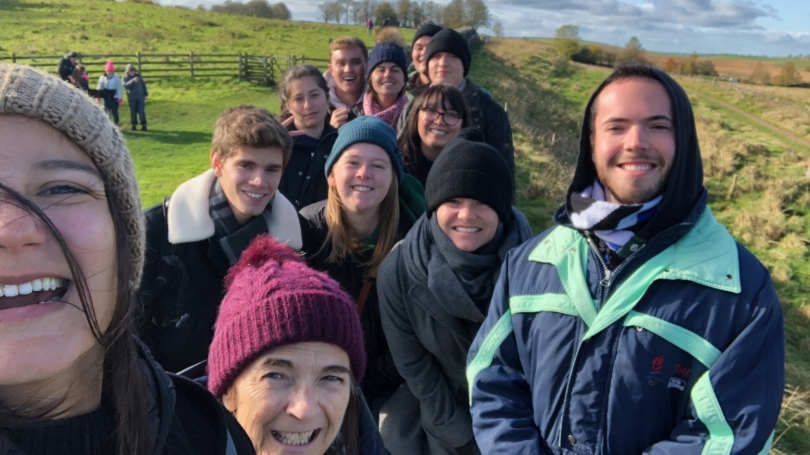When I arrived at Dartmouth, I was planning on majoring in English. After I decided to dabble in Latin my freshman fall, though, I found myself drawn to Roman history and archaeology as well. I decided to apply for the Classics FSP in Italy my sophomore year because I wanted to experience in person the sites and monuments that had first enchanted me as projections on the walls of Reed Hall. I realized that term in Italy that, as much as I loved Hanover, nothing could compare to the experience of class in the Forum Romanum or an Etruscan necropolis or a Pompeian domus. It was studying in Italy that really made me fall in love with archaeology. By visiting these sites, by standing within and walking around their ancient walls, I gained an entirely new understanding and appreciation of the material. My memories of Professor Stewart's lectures and my classmates' presentations on site are so vivid that I can remember and refer to them now, almost 17 years later. The rigor and intensity, the depth and breadth of the FSP prepared me extremely well not only for the rest of my time at Dartmouth, even classes outside my major, but also for my master's in Classical Archaeology and my career in museums. Now, I am back in school writing a PhD thesis in Etruscan Archaeology, and I still remember Professor Stewart's feedback on my first archaeology paper of the FSP. I didn't know how to write an archaeology paper properly yet, and I hadn't done very well, but as we sat together one morning over breakfast, Professor Stewart patiently walked me through how to structure the paper, how to discuss and evaluate the evidence. She continued to mentor me back in Hanover and was a source of constant support at Dartmouth and beyond. This year, I organized my first conference session and presented my first paper at the annual meeting of the Archaeological Institute of America. As I sat in the front row waiting for the session to begin, starting to panic, I heard someone call my name and looked up to see Professor Stewart smiling at me. She had seen my name in the program and come to support me. If I hadn't done the FSP, I don't think I would have been at that conference; I might have missed my true calling and ended up an English major.

